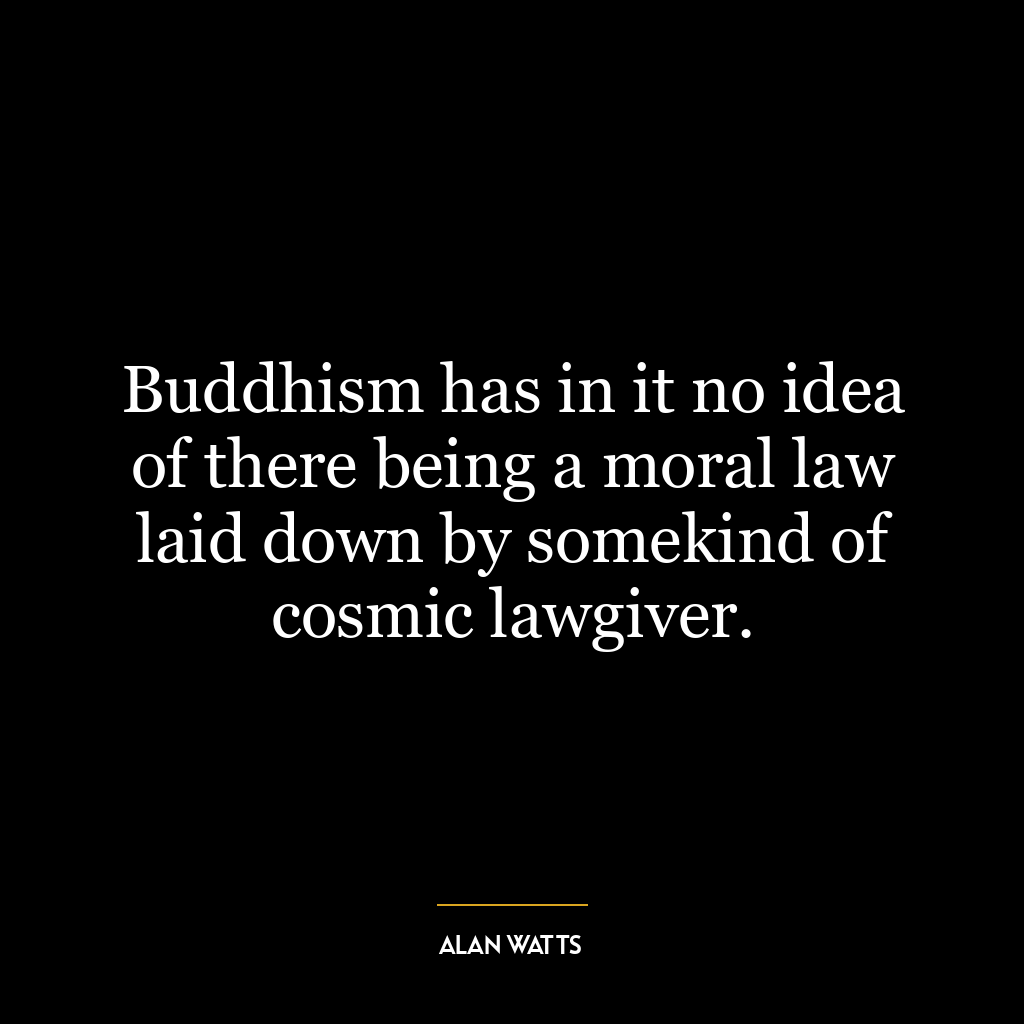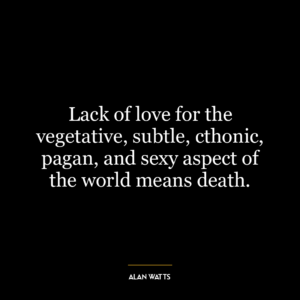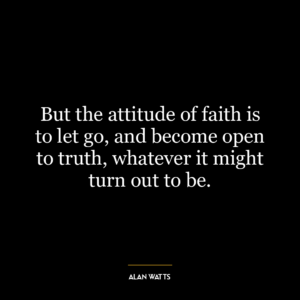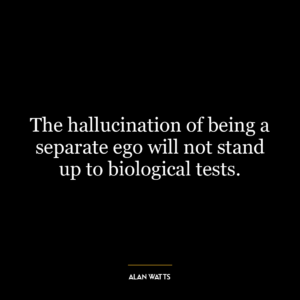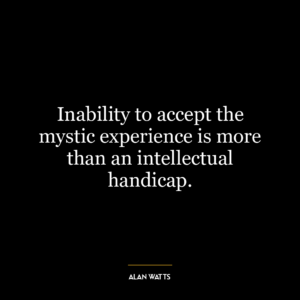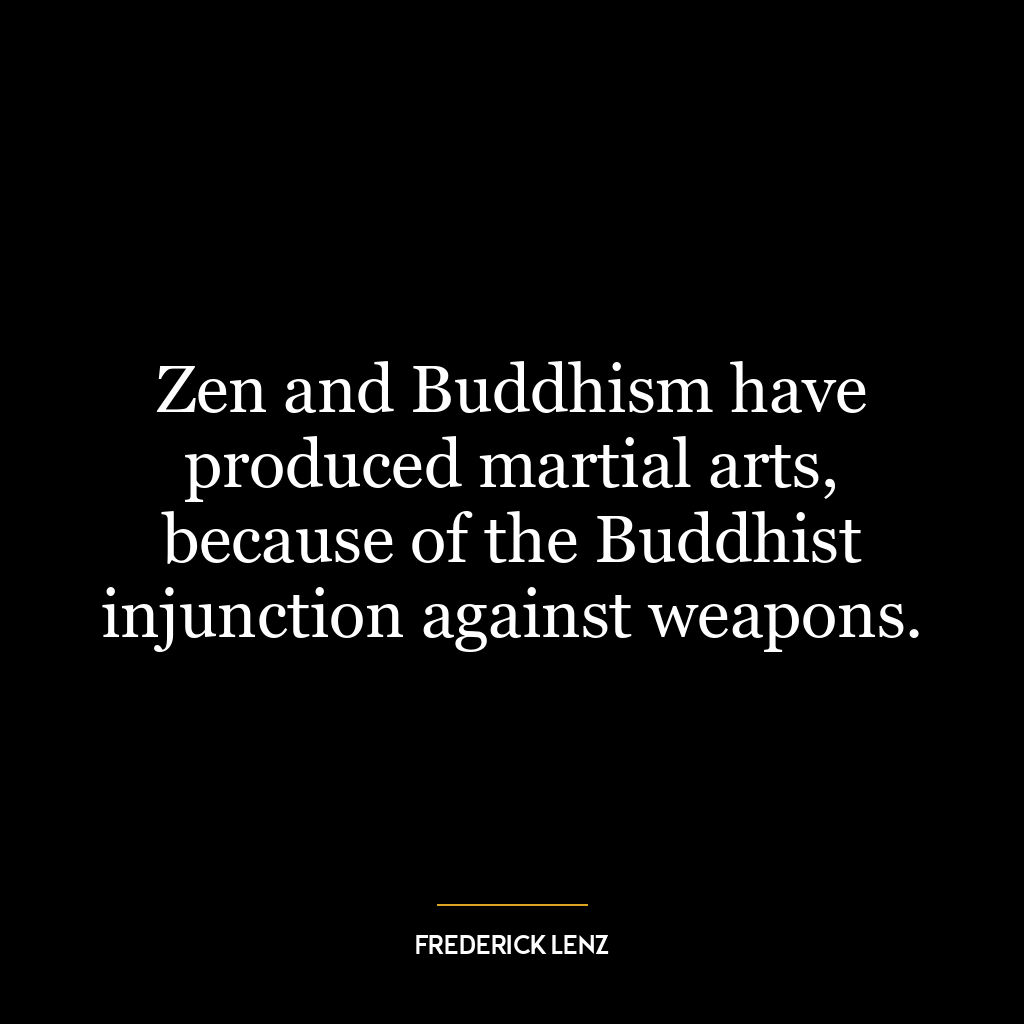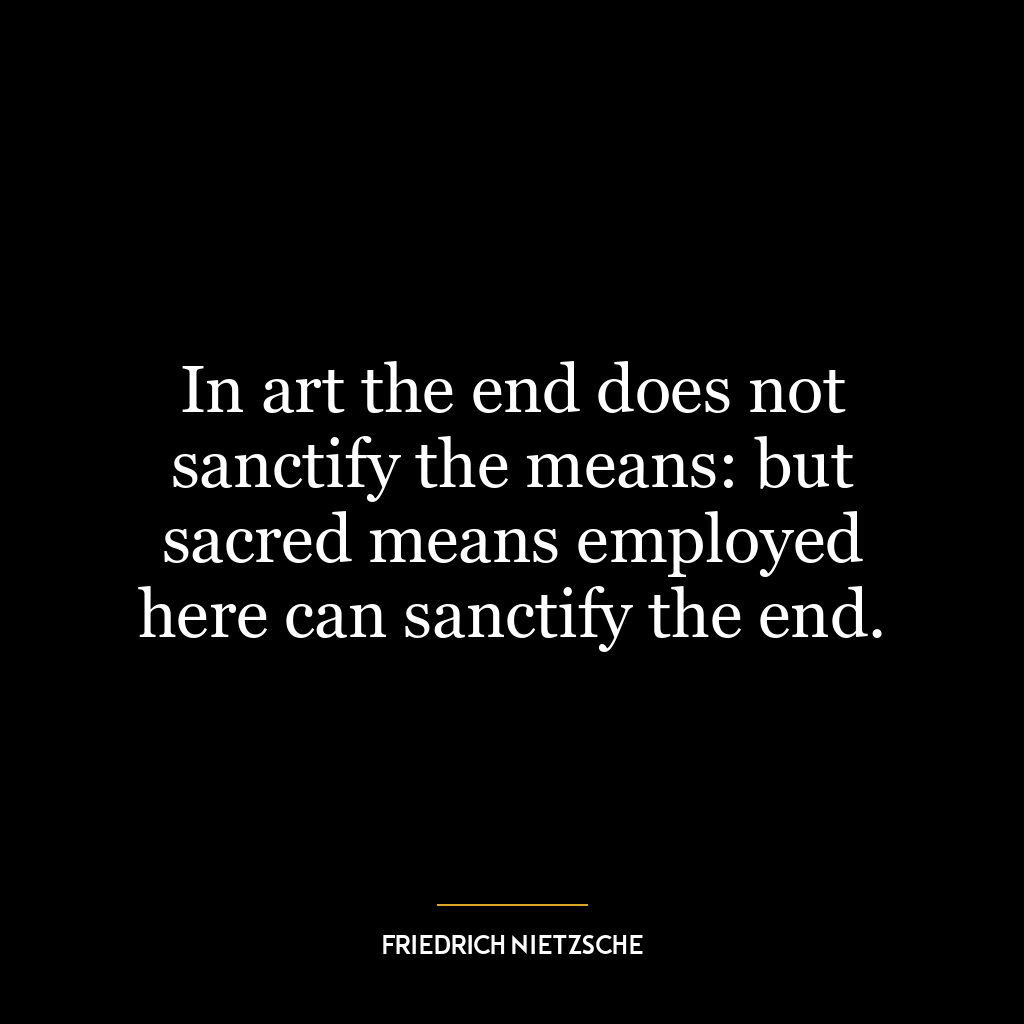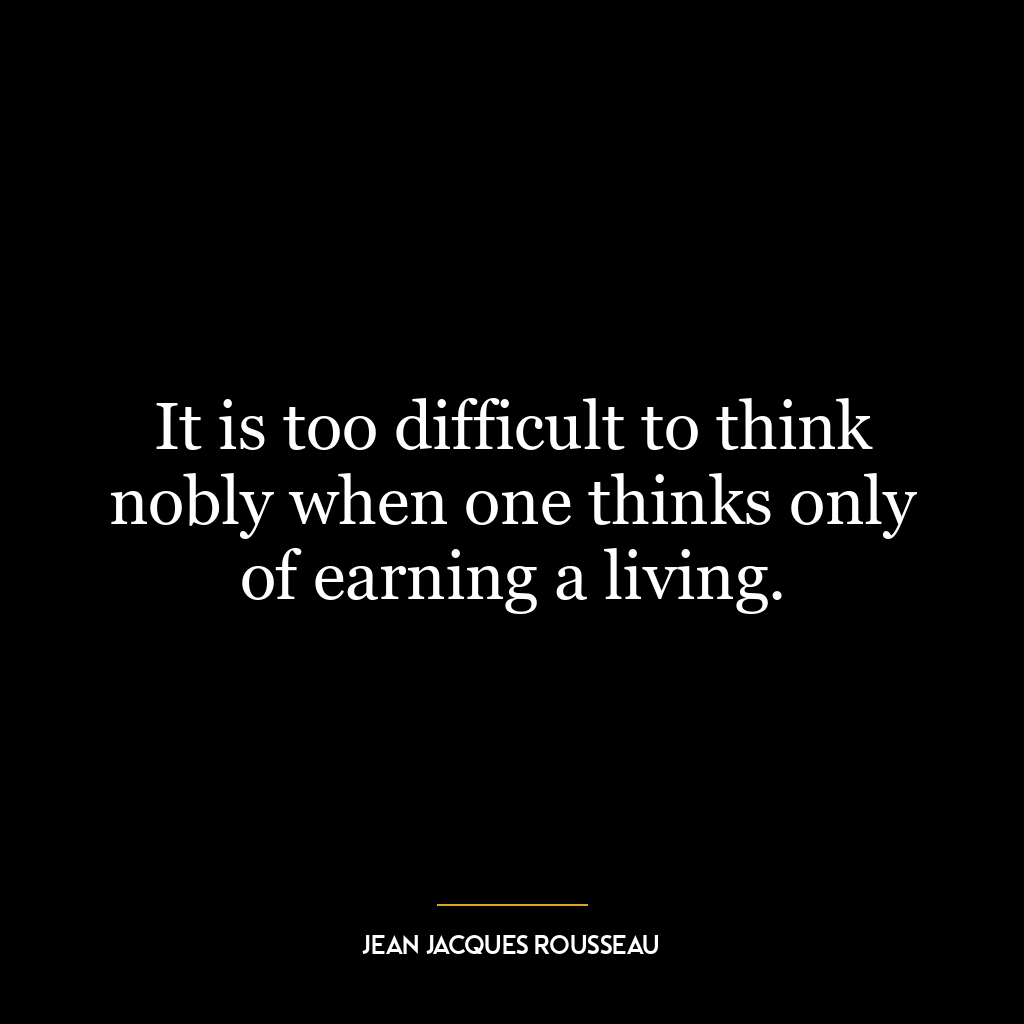The quote suggests that Buddhism does not subscribe to the belief of a divine entity or cosmic lawgiver who dictates moral laws that humans must follow. Instead, Buddhism emphasizes self-realization and personal experience as the path to understanding morality and ethics. It sees morality not as a set of rules imposed from the outside, but as a natural result of understanding the nature of reality and our place within it.
In Buddhism, the concept of Karma is central, which is often misunderstood as a system of reward and punishment meted out by a cosmic lawgiver. However, in reality, Karma is more about cause and effect. It suggests that our actions have consequences, and these consequences are not rewards or punishments, but simply outcomes that naturally follow from our actions.
Applying this idea to today’s world or personal development, it suggests that we should not look to external authorities to tell us what is right or wrong. Instead, we should seek to understand the world and our place in it, and our actions should flow naturally from this understanding.
In terms of personal development, this idea encourages self-reflection and self-understanding. It suggests that moral and ethical development comes not from blindly following rules, but from a deep understanding of ourselves and our relationship with the world. It encourages us to take responsibility for our actions and their consequences, rather than attributing them to some external force or authority.
This approach can lead to a more authentic and meaningful life, as we are not simply following rules, but acting in accordance with our deep understanding of the world. It can also lead to a greater sense of empowerment, as we recognize that we are not at the mercy of some external cosmic lawgiver, but are the creators of our own destiny through our actions and their consequences.

